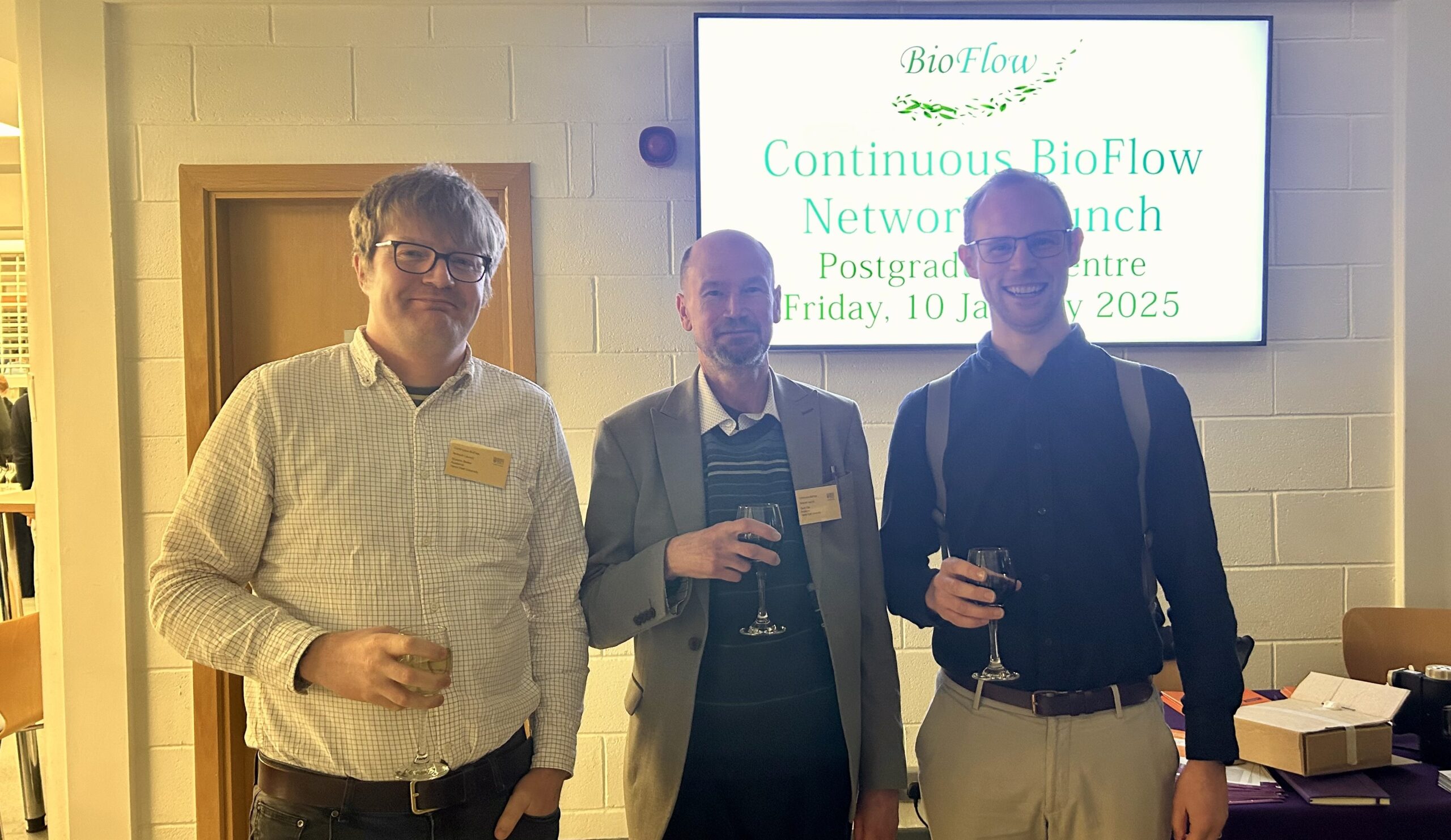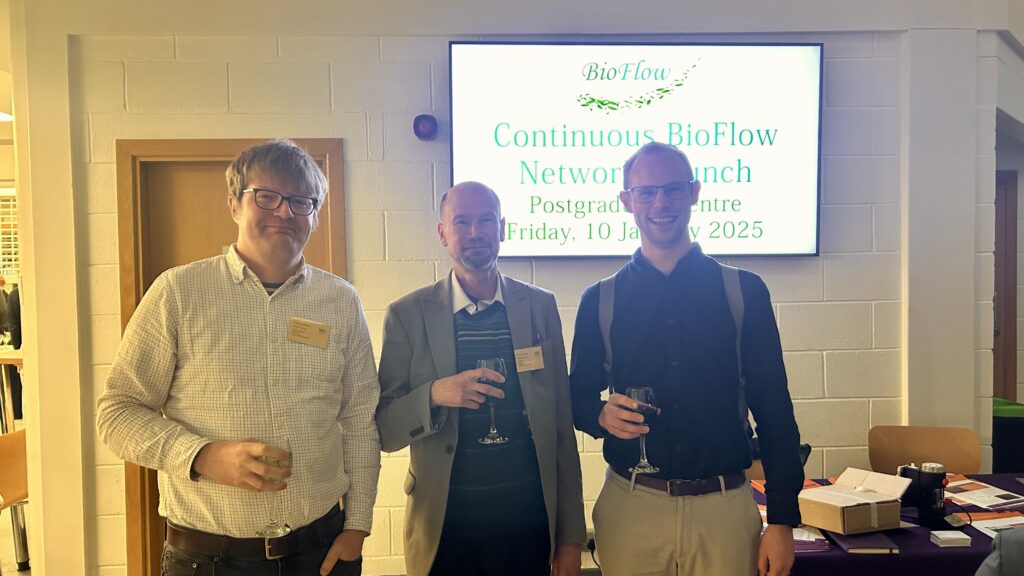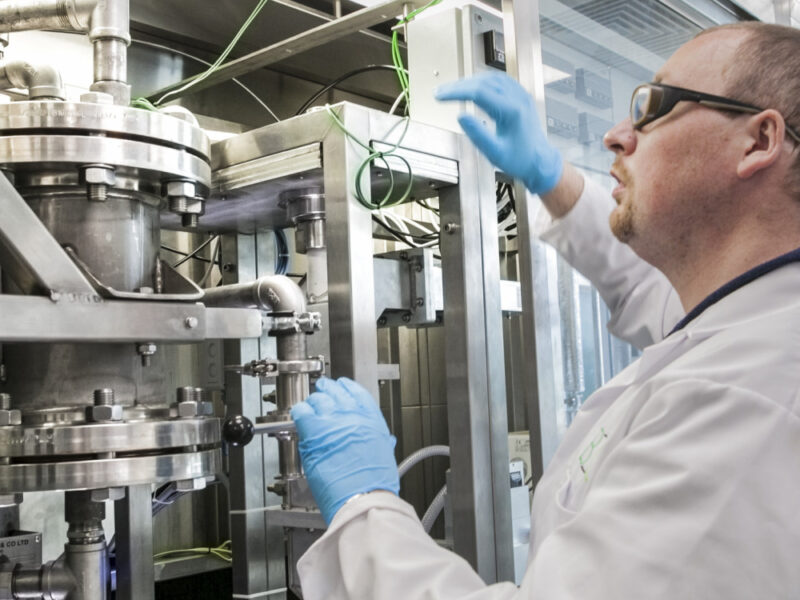
Dr. Sebastian Cosgrove – Senior Lecturer and Network Co-founder, Keele University
The Continuous BioFlow Network has had over 100 members with broad areas of experience and expertise; this strong interdisciplinary nature of the network is exciting and will facilitate many new, interdisciplinary connections which were unlikely to happen otherwise.
An introduction to BBNet member – Sebastian Cosgrove, Continuous Bioflow Network Co-founder
Hi I’m Sebastian Cosgrove, Senior Lecturer in Organic Chemistry at Keele University. My work focuses focusses on using technology to improve and increase biocatalysis application in synthetic chemistry, with a particular focus on enzyme immobilisation and continuous flow. I am also the co-founders of the Continuous Bioflow Network with my colleagues Dave Ellis and Graeme Barker (Heriot-Watt University). The network is interested in the advancement of biomanufacturing and continuous flow biocatalysis.
What work are you doing in the bioeconomy space?
The Continuous BioFlow Network is focussed on bringing together likeminded individuals across the bioeconomy to help promote research and collaboration in continuous flow biocatalysis and biomanufacturing. This is more focus on bioprocess optimisation, and connecting people across the TRL landscape, from academics, to scale up facilities and industry, to allow continuous biomanufacturing to realise its full potential.
What are you most excited about right now in your work?
Our launch event in January 2025, which was funded by BBNet, attracted over 100 registrations and 85 attendees (even in Edinburgh in January!). This demonstrated to us that there is a need for our network, and that many others feel as passionately about this exciting area of translational science as we do. The mix of attendees was interesting to see, with all career stages covered and many different sectors represented, from fine chemical synthesis and even patent attorneys.
What do you see as the long-term potential and impact of your research or technology?
The network is planning several follow up events in the coming months to try and maintain our initial momentum. In addition to a summer webinar in August 2025, we are also speaking at the BBNet meeting in Sheffield in October 2025 whilst we plan to host our second annual meeting in January 2026 at Keele University. We know from our first meeting there have already been several new collaborations, so we hope that in the coming years we will start to see research from the network. Our medium/long-term goal is to establish the network independently with its own funding to enable proof-of-concept research amongst members and facilitate further new connections.
What got you interested in this area of research?
The current board (Dr Sebastian Cosgrove, Keele University, Dr Graeme Barker and Dr Dave Ellis, both Heriot-Watt) met through common connections and realised there was a shared interested in continuous flow and biocatalysis. The network was established after reaching out to different groups across the UK and seeing that many others felt a network in this space was also of interest. BBNet were extremely supportive of this initiative too, helping to promote the network and fund the initial meeting.
What challenges are you currently facing?
Funding, as for everyone, is seemingly getting more challenging to obtain. Given how hard it is to fund research grants now, network funding seems to also be less available than recent times. With the demonstrable success of the NIBBs, there is a desire across BBSRC stakeholders for this to continue, and we believe the Continuous BioFlow Network would play an important role in some form in this, focussing on translational research towards process development.
What concerns do you have about current UK policy?
There seems to be a strong focus on application and a shift away from more fundamental science in UK policy. This is clearly important as science needs to demonstrate impact and potential for commercialisation, however, if less discovery science is being undertaken this will remove the primary area of research which ultimately leads to commercial applications.
What has been your favourite collaboration so far?
The Continuous BioFlow Network, as stated above, has had over 100 members sign up and it is amazing to see the broad areas of experience and expertise of these people. This strong interdisciplinary make up of the network is exciting to see as it will facilitate many new, interdisciplinary connections which were unlikely to happen otherwise.
What is your favourite thing about BBNet events?
The collegiate and friendly nature of the meetings.
What are you looking for from other network members?
We want as many people as possible from BBNet and beyond to support our initiative! It would be great for those who are not currently working in continuous flow or biomanufacturing to be involved, as the diversity of thoughts and ideas is key to interdisciplinary network success.





